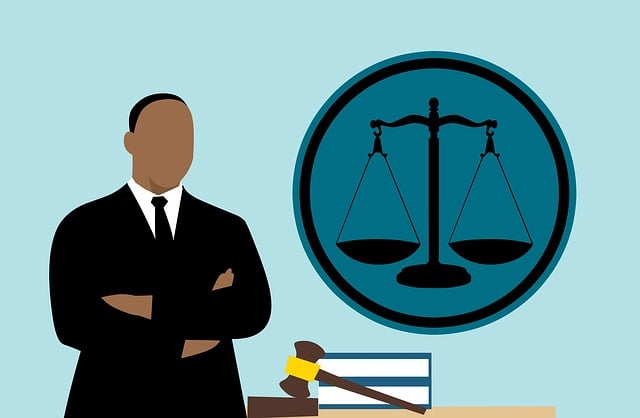
Category: Denver Colorado Bankruptcy Lawyer
Denver Colorado Bankruptcy Lawyer: A Comprehensive Guide
Introduction
Welcome to an extensive exploration of the critical role played by Denver Colorado Bankruptcy Lawyers in the complex world of financial law. This article aims to provide a comprehensive understanding of this specialized legal field, its historical evolution, global impact, and future prospects. By delving into various aspects, we will equip readers with valuable insights into how bankruptcy laws, specifically tailored for Colorado’s legal framework, navigate individuals and businesses through financial crises.
Understanding Denver Colorado Bankruptcy Lawyer
Definition: A Denver Colorado Bankruptcy Lawyer is a legal professional specialized in the interpretation and application of federal and state bankruptcy laws to assist clients facing financial difficulties. They guide individuals and entities (businesses, organizations) through the process of declaring bankruptcy, ensuring compliance with legal procedures and helping them make informed decisions regarding their future financial strategies.
Core Components:
- Bankruptcy Laws: These lawyers are well-versed in Chapter 7, Chapter 13, and Chapter 11 bankruptcy filings under the Bankruptcy Code (Title 11 of the United States Code). Each chapter has distinct purposes, such as liquidating assets (Chapter 7), debt restructuring (Chapter 13), or corporate reorganizations (Chapter 11).
- Debtor-Creditor Relationships: A key aspect is facilitating communication and negotiations between debtors (those seeking bankruptcy protection) and creditors (lenders, investors). They help mediate disputes and ensure fair treatment for all parties.
- Asset Protection and Recovery: Lawyers assist in identifying and protecting exempt assets while efficiently managing the distribution of assets to satisfy creditor claims.
- Legal Documentation: Preparing and filing necessary legal documents, such as petitions, schedules, and statements, is a critical task. These documents are detailed and require precise language to avoid legal complications.
Historical Context: The modern bankruptcy laws in the United States have their roots in the 1978 Bankruptcy Reform Act. This act streamlined the bankruptcy process and introduced the current framework. In Colorado, state-specific bankruptcy laws further define the rights and procedures for debtors, ensuring they receive fair treatment according to local regulations.
Significance: Denver Colorado Bankruptcy Lawyers are vital during economic downturns or personal crises when individuals and businesses face insurmountable debt. They provide a legal safety net, helping clients navigate complex legal systems and potentially saving them from severe financial consequences.
Global Impact and Trends
The influence of Denver Colorado Bankruptcy Law extends beyond state borders due to the interconnected nature of global economies and cross-border business activities:
- International Business Transactions: Lawyers specializing in this field assist multinational corporations and investors navigating bankruptcy laws across different jurisdictions, ensuring compliance during international mergers, acquisitions, or investments.
- Global Financial Crises: During economic downturns, there is often a surge in cross-border insolvency cases. Denver lawyers can contribute to global discussions on uniform bankruptcy procedures and cooperative debt recovery efforts.
- Trends in Cross-Border Insolvency: Increasing globalization has led to a rise in complex cross-border insolvency cases. Lawyers must stay abreast of international treaties, such as the Model Law on Cross-Border Insolvency, which facilitates cooperation between nations in dealing with insolvency matters.
Economic Considerations
Market Dynamics:
- Demand for Services: Economic downturns and rising consumer debt drive up the demand for Denver Colorado Bankruptcy Lawyer services. This trend is evident during recessions or when specific industries suffer significant financial setbacks.
- Competition and Specialization: The market consists of both large law firms with diverse practice areas and specialized bankruptcy law offices. Specialization allows lawyers to develop deep expertise, attracting clients seeking tailored solutions.
Investment Patterns:
- Asset Protection Strategies: During uncertain economic times, individuals and businesses invest in asset protection strategies, such as setting up trusts or incorporating entities, to safeguard their wealth from potential bankruptcy.
- Restructuring Opportunities: Bankruptcy laws provide a framework for debt restructuring, attracting investors who seek to acquire distressed assets at discounted prices. This can stimulate economic recovery by facilitating the sale and reorganization of businesses.
Role in Economic Systems:
Denver Colorado Bankruptcy Lawyers play a critical role in maintaining economic stability during financial crises. They contribute to:
- Debt Management: Assisting debtors in managing and reducing debt levels, which can prevent personal or corporate bankruptcies and preserve financial health.
- Creditor Recovery: Ensuring that creditors receive a fair share of their claims, facilitating the efficient distribution of assets, and promoting economic recovery.
- Business Continuity: Providing restructuring options for businesses facing difficulties, allowing them to continue operations while addressing financial challenges.
Technological Advancements
Technology has significantly transformed the practice of Denver Colorado Bankruptcy Law:
- Case Management Software: Lawyers utilize case management systems to track deadlines, prepare documents, and maintain client communication efficiently. These tools streamline the process, reducing administrative burdens.
- Online Filing Systems: The adoption of electronic filing systems through platforms like PACER (Public Access to Court Electronic Records) has revolutionized how bankruptcy petitions and documents are submitted, making the process faster and more accessible.
- Data Analytics: Advanced analytics helps lawyers identify trends in bankruptcies, predict outcomes, and develop strategic approaches for specific cases. It also aids in risk assessment and client profiling.
- Virtual Hearings: The rise of remote technology has made virtual bankruptcy hearings possible, allowing debtors and creditors to participate from anywhere, increasing accessibility and convenience.
Legal Updates and Challenges
Recent Changes:
- Bankruptcy Abuse Prevention and Consumer Protection Act (BAPCPA): Passed in 2005, this act introduced stricter rules for individual debtors, particularly those filing Chapter 7 bankruptcy. It aimed to prevent abuse of the system but also increased complexity for lawyers.
- COVID-19 Impact: The pandemic led to economic uncertainty and a surge in personal bankruptcies. Lawyers had to adapt quickly to changing circumstances, offering remote services and providing guidance on COVID-related financial hardships.
Ongoing Challenges:
- Complex Insolvency Cases: With increasing business complexity and global operations, bankruptcy cases often involve intricate financial structures, making it challenging for lawyers to navigate and provide effective representation.
- Ethical Considerations: Lawyers must maintain client confidentiality while ensuring transparency during the bankruptcy process, balancing these ethical duties in sensitive cases.
- Access to Justice: Ensuring that all individuals, regardless of income, have access to quality legal representation in bankruptcy matters remains a challenge. Pro bono services and community outreach programs address this issue.
The Role of Technology in Client Services
Online Resources:
- Client Education: Many lawyers provide online resources, webinars, and educational materials to help clients understand bankruptcy processes, options, and rights. This empowers individuals to make informed decisions.
- Case Evaluation Tools: Initial case evaluations can be conducted remotely using secure video conferencing platforms, allowing clients to discuss their financial situations with lawyers from the comfort of their homes.
Digital Communication:
- E-Mail and Messaging: Secure email systems and messaging platforms facilitate efficient communication between lawyers and clients, ensuring quick response times.
- Document Sharing: Cloud-based document sharing services enable clients to access and download legal documents securely, promoting client engagement in the process.
Future Prospects and Predictions
The field of Denver Colorado Bankruptcy Law is poised for growth and evolution:
- Specialized Practice Areas: As cases become more complex, lawyers may focus on specific niches, such as cross-border insolvency, real estate bankruptcy, or student loan debt restructuring.
- Technological Integration: Advanced technologies like artificial intelligence (AI) and natural language processing (NLP) could enhance document review, case analysis, and legal research, increasing efficiency and accuracy.
- Data-Driven Decisions: Analyzing large datasets of bankruptcy filings can identify emerging trends and patterns, helping lawyers develop proactive strategies and better serve clients.
- Global Collaboration: The trend towards international cooperation in insolvency matters is expected to continue, leading to more uniform procedures and cross-border collaborations among legal professionals.
- Regulatory Changes: Future legislative changes may address issues like student loan debt relief, consumer protection, or business restructuring, requiring lawyers to stay agile and adaptable.
Conclusion
Denver Colorado Bankruptcy Lawyers play a pivotal role in safeguarding the financial well-being of individuals and businesses during challenging times. With technological advancements and global economic interconnectedness, their practice area continues to evolve, ensuring that debtors receive expert guidance and fair treatment under the law. As the legal landscape adapts to changing circumstances, these lawyers remain essential contributors to economic stability and recovery.









